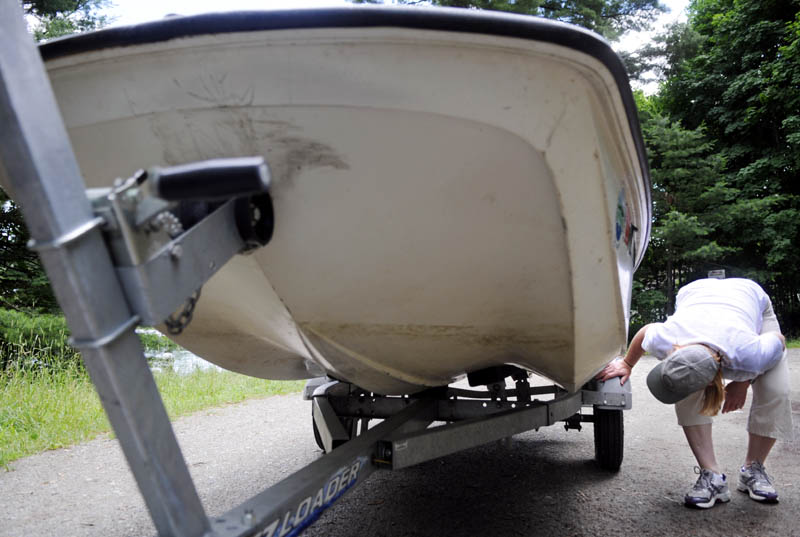WINTHROP — As boating season kicks into high gear, state officials say it’s time for everyone to help prevent the spread of invasive plants such as milfoil and hydrilla.
The best, easiest and most cost-effective way? Check your boat, kayak and canoe before and after you go in the water. Every time.
“A three or four minute boat inspection can prevent (the spread) from the get-go,” said Paul Gregory, an environmental specialist for DEP.
And while the state and local lake associations have had success with volunteers performing inspections at some boat launches, they can’t be everywhere. That’s why the Maine Department of Environmental Protection has declared 2012 The Year of the Boater Self-Inspection.
Some 23 of the state’s 6,000 lakes have been infested with milfoil or hydrilla, according to the DEP. Invasive aquatic plants disrupt habitat for native plants and animals, reduce fishing and water recreation opportunities, and can lower property values, according to DEP.
So far this summer, there have been boat bans in place on Great Meadow Stream and part of Great Pond in the Belgrade Lakes region because of variable leaf milfoil. In Jefferson, hydrilla has been found in Davis Stream. Efforts are under way to prevent the spread from the stream into Damariscotta Lake.
Observations by state staff and volunteers indicate that fewer than 20 percent of Maine boaters check their boats before they launch or when they take out. Karen Hahnel, an environmental specialist with DEP, said it’s important for boaters to pick off any plants they see, whether they think they are invasive or not.
She said boaters should check the propeller and the engine, and look under the boat. They should make sure nothing is hanging off the license plate on the trailer. The boat and trailer should be checked from bow to stern, and boaters should drain their vessels on site.
“Don’t drain it in another lake,” she said.
Inside, check all fishing gear, bait wells, lines and the anchor.
If you find something, put it in a trash can.
In addition to encouraging boaters to protect the lakes they love, the DEP also touts statistics from the Congress of Lake Associations that show the state’s lakes are a $3.5 billion annual economic engine that sustain 52,000 jobs. Hahnel said everyone can help protect Maine’s environment.
“It’s changing your behavior,” she said. “Let’s take it a step further and do a complete inspection.”
Susan Cover — 621-5643
scover@mainetoday.com
Send questions/comments to the editors.



Success. Please wait for the page to reload. If the page does not reload within 5 seconds, please refresh the page.
Enter your email and password to access comments.
Hi, to comment on stories you must . This profile is in addition to your subscription and website login.
Already have a commenting profile? .
Invalid username/password.
Please check your email to confirm and complete your registration.
Only subscribers are eligible to post comments. Please subscribe or login first for digital access. Here’s why.
Use the form below to reset your password. When you've submitted your account email, we will send an email with a reset code.